At the University of Washington School of Nursing, we strive to create nurse leaders who are committed to improving healthcare in their communities and beyond through innovative and evidence-based solutions.
Our impact is profound — whether we are launching our graduates into a world of opportunities or confronting the greatest health challenges of our time through undaunted research and scholarship.
Our seven centers of excellence provide infrastructure support, leadership, and collaborative mentoring for faculty, clinicians, and students. Discover research opportunities for students in healthy aging, global health, sleep innovation, mental and behavioral health, and anti-racism.
We are ranked #1 among public institutions with Doctor of Nursing Practice programs (#3 overall) and in the top #10 among public schools with master’s degree programs (specific to UW Bothell and UW Tacoma) by 2024 U.S. News and World Report. We are also ranked in the top 10 among public universities for our Bachelor of Science program in Nursing (BSN).
PROGRAMS BY CAMPUS
An international leader, the UW School of Nursing is a vibrant center of teaching, research and clinical excellence. We have provided exceptional education, policy leadership, and thought innovation to the profession, nation, and world since 1918. The School offers distinct programs in three locations across the Puget Sound.
Our impact is profound — whether we are launching our graduates into a world of opportunities or confronting the greatest health challenges of our time through undaunted research and scholarship. Together, our students, faculty, and staff work boundlessly to turn ideas into impact and improve the health of people and communities locally and globally.
-

UW Seattle
-
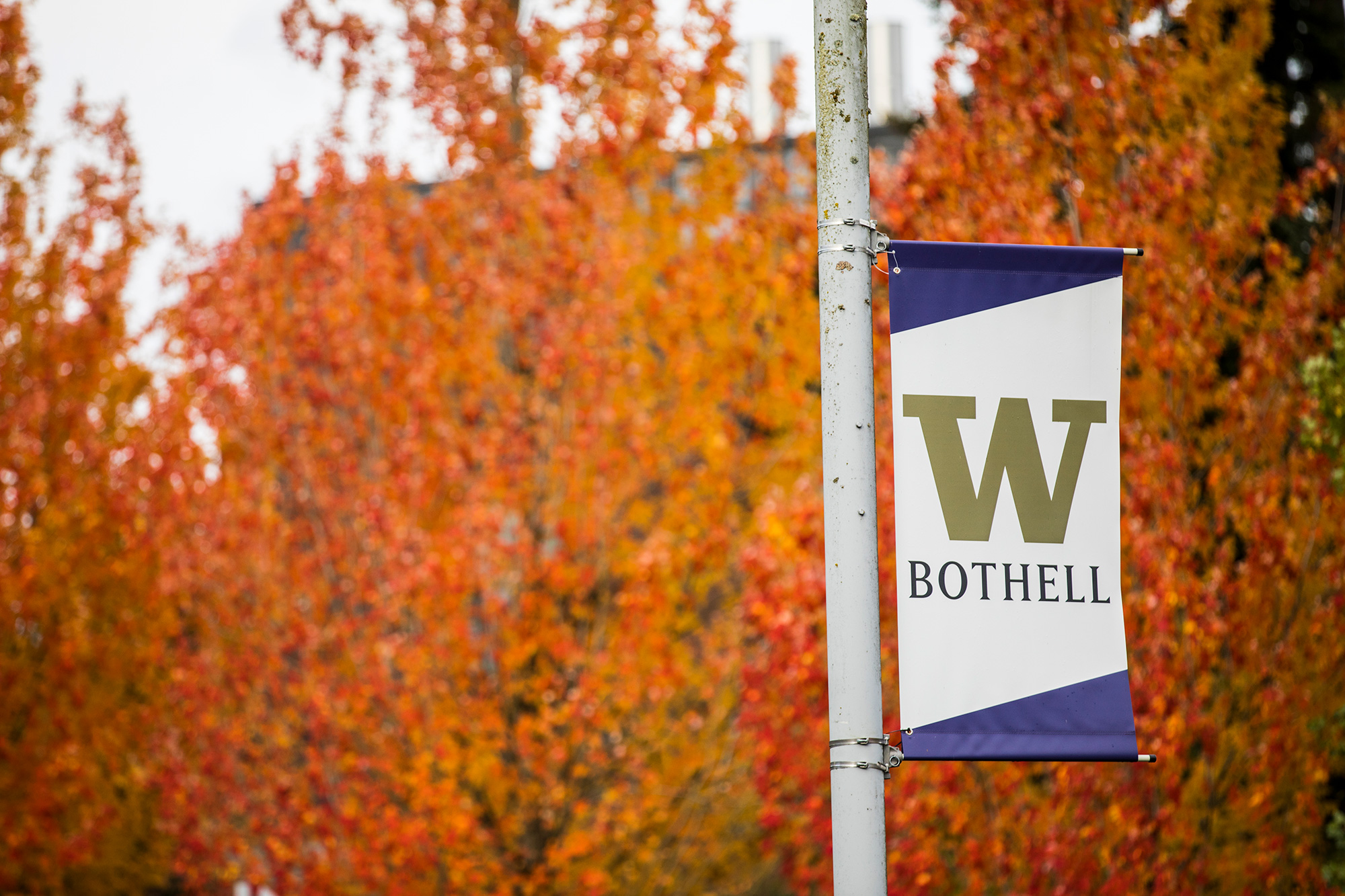
UW Bothell
-
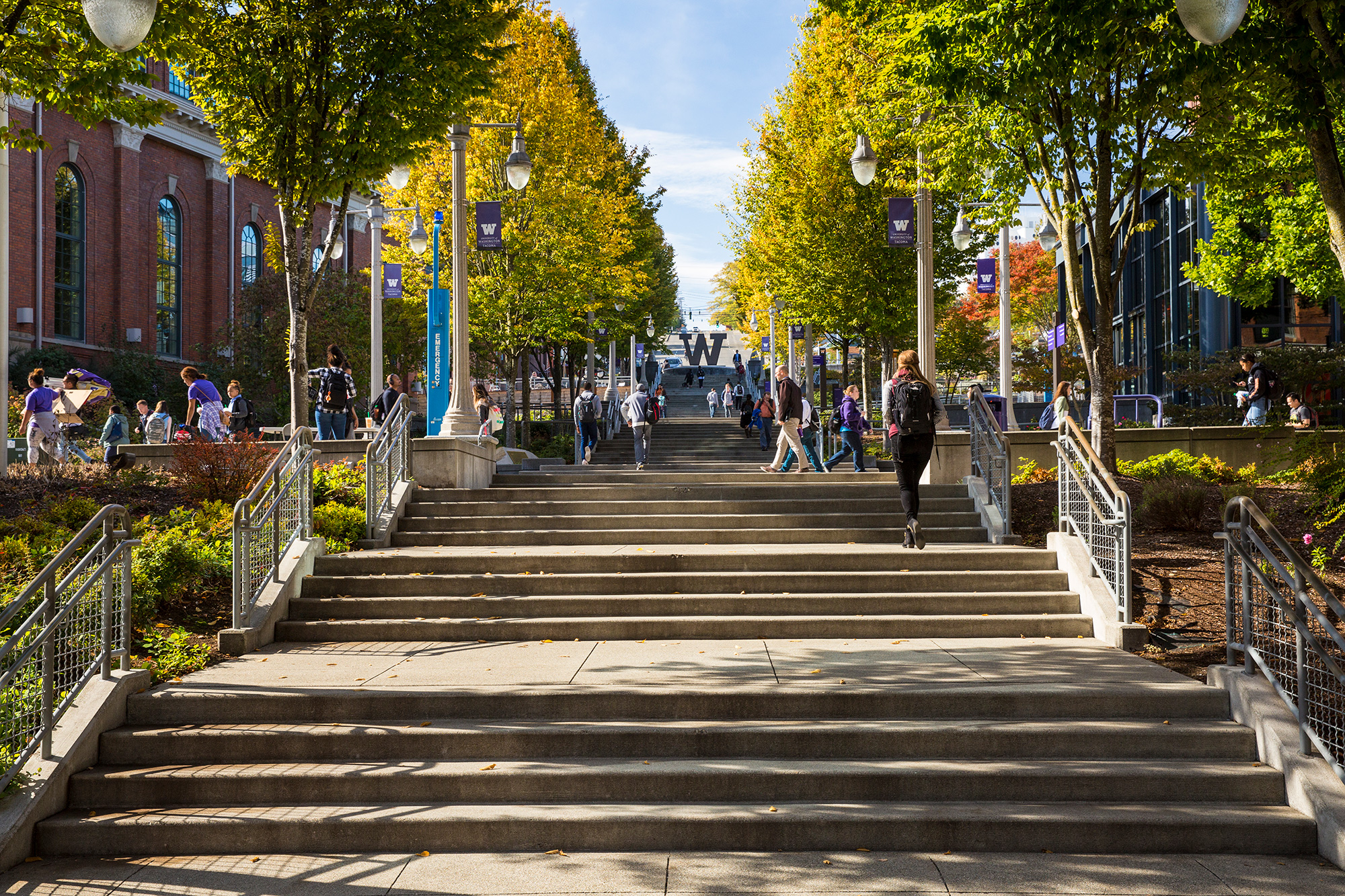
UW Tacoma
MISSION, VISION & VALUES
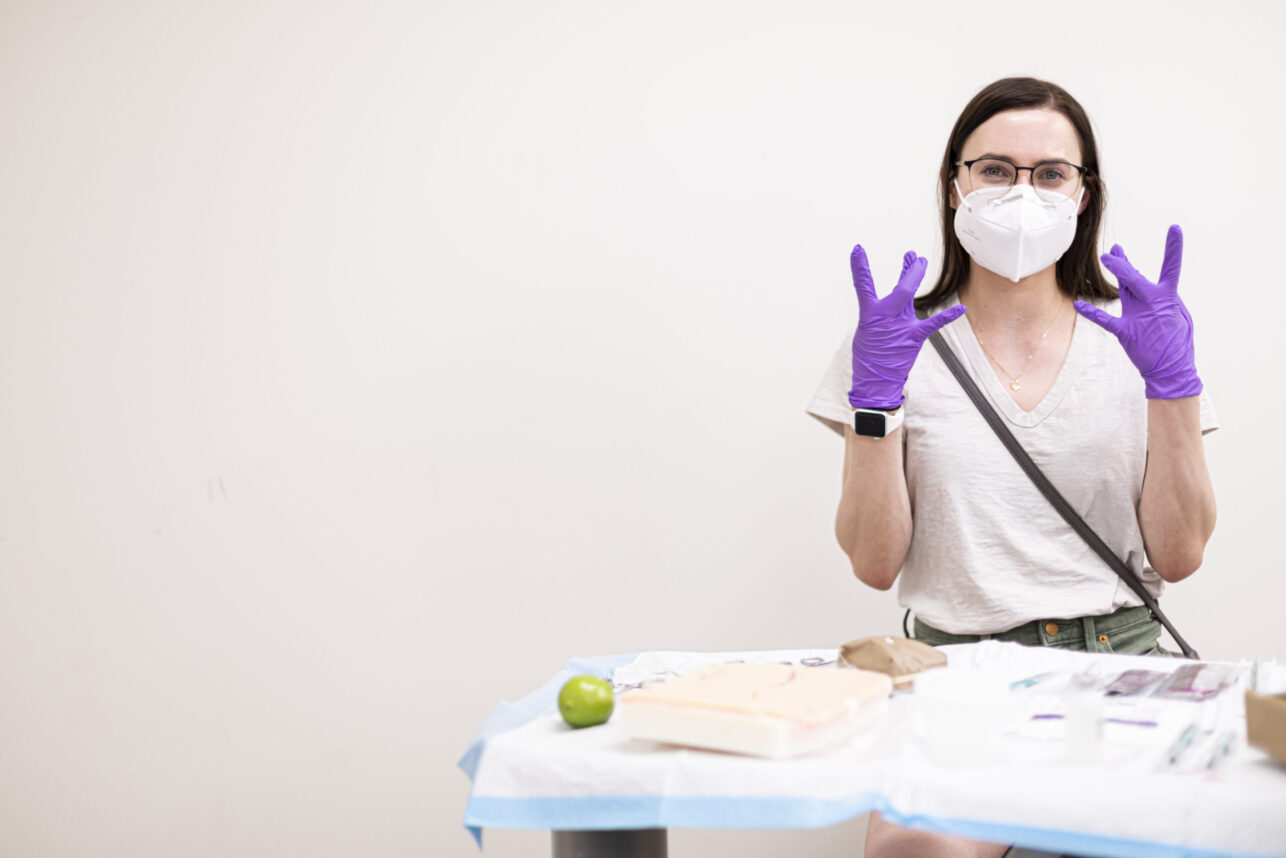
Our mission is to advance nursing science and practice through generating knowledge and educating future leaders to address health for all.
Our vision is to pioneer improvements in health and health care through innovative nursing science, education, and practice.
Our values include:
- Collaboration
- Social responsibility
- Integrity
- Respect
- Accountability
- Diversity
- Excellence
UW has excellent academic foundations, and its faculty has by far exceeded my expectations. The support and understanding from faculty during a time like this has role modeled qualities I want to integrate into my DNP practice. I am beginning to unveil my eyes to my potential and how I can affect Health Equity.
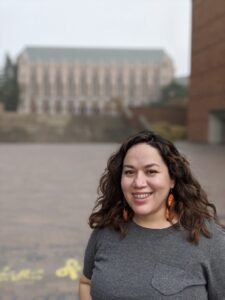
FAST FACTS
Faculty
Learn from nationally and internationally recognized faculty. We have 26 faculty members elected fellows of the American Academy of Nursing, 2 faculty members elected to the National Academy of Medicine, and 6 faculty members elected to the Washington State Academy of Sciences.
Read more about endowed professorships and fellowships.
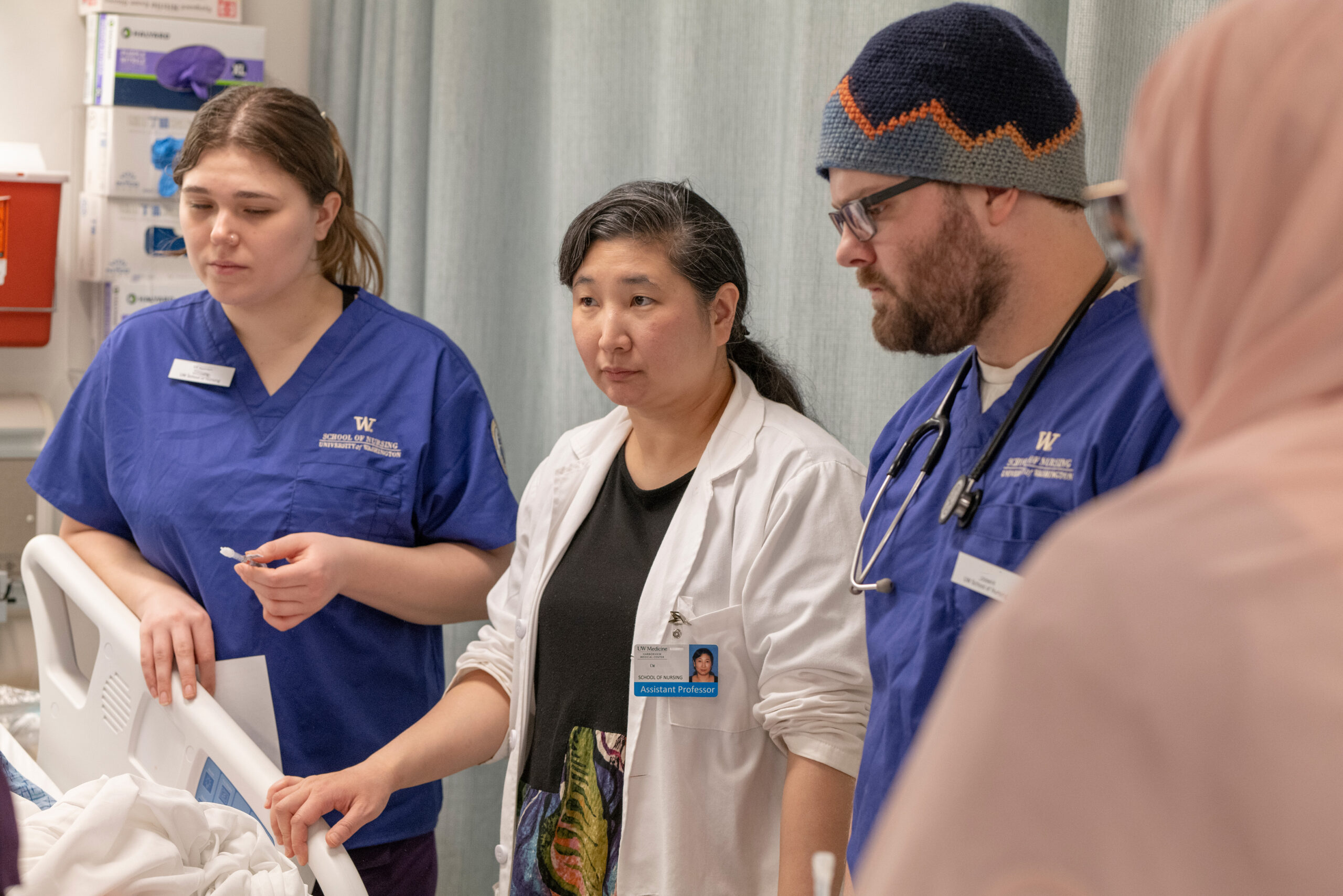

Degrees
We awarded 652 degrees across all three campuses in the 2024-25 academic year (autumn 2024 – summer 2025):
- 110 Doctorate (PhD and DNP)
- 61 Master’s (MN and MS)
- 423 Bachelor’s (BSN, ABSN, and RN-BSN)
HISTORY
For more than a century, UW School of Nursing students, faculty, and staff have transformed ideas into impact and improved the health of people and communities locally and globally.
Our impact is profound — whether we are preparing our graduates for a world of opportunities or confronting the greatest health challenges of our time through undaunted research and scholarship.
Alumni from the UW School of Nursing are leaders in the nursing field across the globe and engage in research, teaching, military service, public health, advocacy, and other forms of transformative health care.
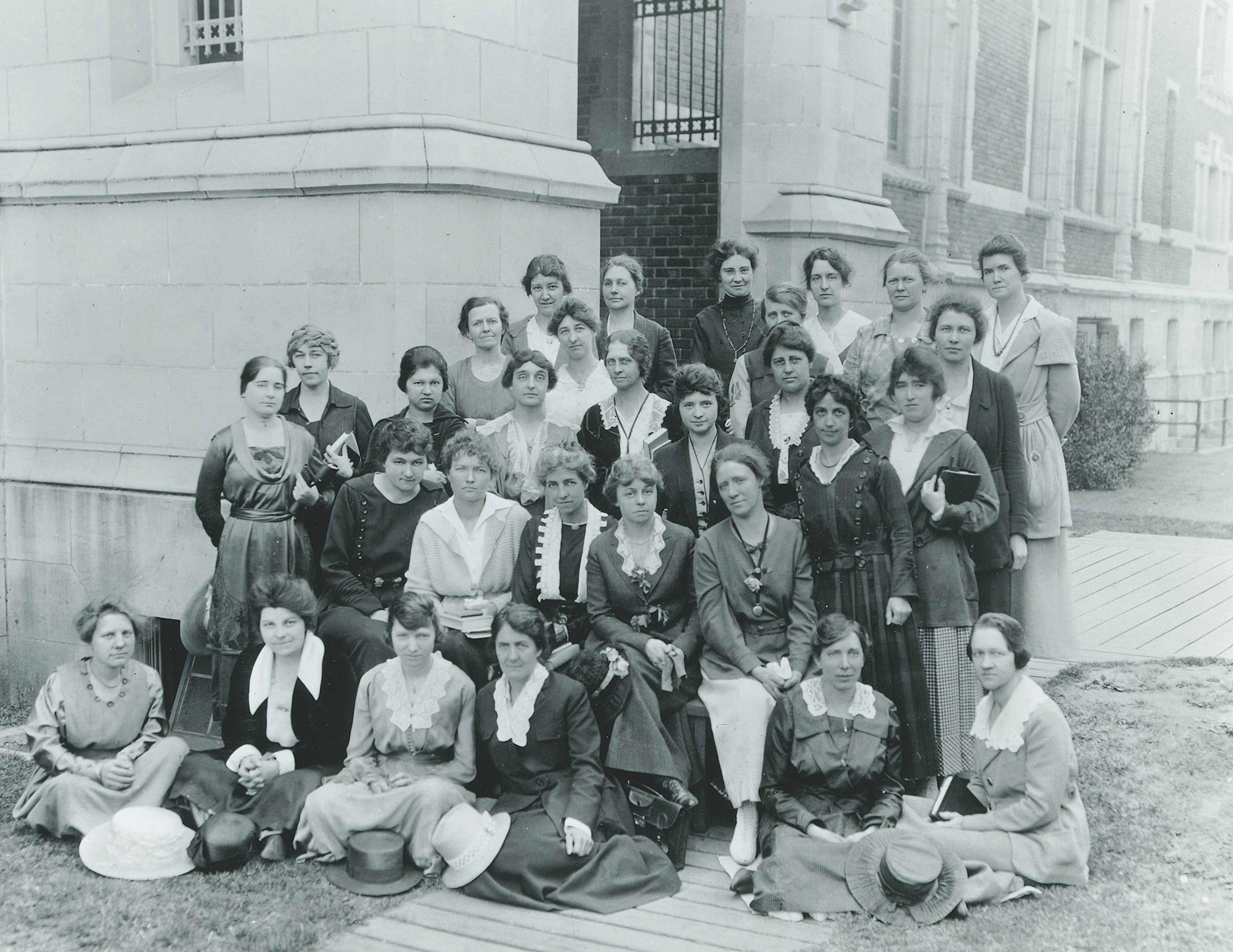
UW's first nursing students
1920s - 1950
A public health champion in the Pacific Northwest
The University of Washington (UW) School of Nursing was one of the first nursing schools on the West Coast. From its earliest days, when the UW offered public health training to nurses responding to the 1918 flu pandemic, the UW School of Nursing has been a hub of research, education, service, and care that improves the health of local and global communities.
Throughout the early 20th century, the UW School of Nursing expanded its reach and influence, addressing the growing demand for nurses in the region and developing innovative programs that improved healthcare across the Pacific Northwest and Alaska.
1960s - present day
A leader in research-based nursing and service
In the 1960s, Dean Mary Tschudin and faculty members Marjorie Batey and Katherine Hoffman developed a nursing research program at the UW that helped to define nursing as a research-based discipline. In 1977, Dean Rheba de Tornyay helped develop the UW’s first PhD in nursing science, and Marcia Killien earned the school’s first PhD in 1982. Today, 99% of the school’s tenured faculty hold PhDs.
Since the 1960s, scientific research has become an integral part of a UW School of Nursing education, and experiential learning is an integral part of both the undergraduate and graduate educational experience. Our faculty members conduct groundbreaking research that transforms the field of nursing. Innovations include Kathryn Barnard’s breakthroughs in infant mental health care, Betty Giblin’s establishment of the nation’s first nursing school sleep lab, and Jeanne Quint Benoliel’s founding of the field of palliative and hospice care.
We evolve and refine our school’s educational offerings to meet society’s health needs. The UW School of Nursing established the first Doctor of Nursing Practice (DNP) degree program on the West Coast in January 2007. Washington state and the UW are leading the way in supporting legal autonomy for advanced practice nurses to diagnose and treat illness, prescribe medication, order diagnostic tests, and follow their patients over time without supervision.